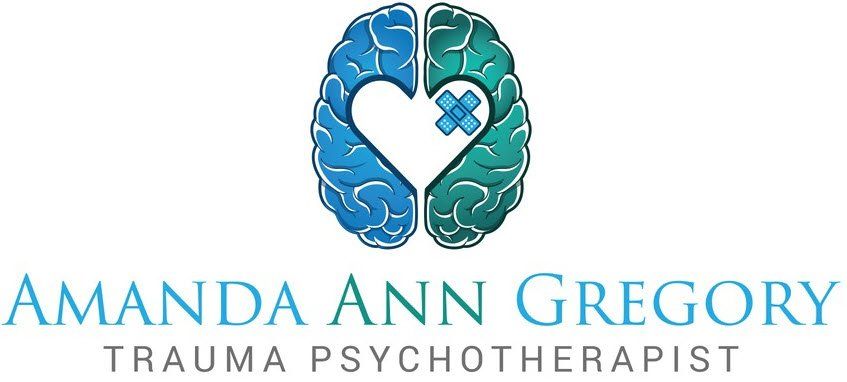Blog Layout
I visit psychotherapists’ offices merely to examine their bookshelves. I’m fascinated by the variety of passions and interests that are reflected in these collections. But, which of these many books should I actually read? I asked my colleagues to recommend their favorites.
Sex
As a couple's therapist who is interested in sexual dysfunction and intimacy,
Come As You Are: The Surprising New Science that Will Transform Your Sex
Life
by Dr. Emily Nagoski, demonstrates the power of a sexual context and the role it plays on sexual desire, turn offs/ons, and confidence in one's sexual self,” writes
Jeannie Peters
. "This book is great, as it addresses cultural pressures and speaks to a woman's sexual normalcy in relation to sex shaming and orgasms. This book also gives readers opportunities to sit back and reflect on their own sexual encounters, which can then be shared with a partner as a way to deepen their current sexual understanding of each other.”
Self-Compassion
As a therapist who focuses on treating clients who struggle with anxiety, depression, and low self-esteem I often recommend books by Brene Brown,” writes
Mallory Welsh, LCSW
. “
The Gifts of Imperfection: Let Go of Who You Think You're Supposed to Be and Embrace Who You Are
touches on the importance of having a higher sense of self-compassion. As a clinical therapist, I believe that greater self-compassion can improve self-esteem and at times diminish anxiety."
"Anyone who is struggling with a lack of self-compassion will truly benefit from this book.”
SMART Recovery
“My favorite book for therapy tools is the
SMART Recovery Family and Friends Handbook
,” writes
Andrew McNaughton, LCSW, CADC
. “It’s loaded with a wide range of incredibly useful information and tools for clients looking to make lasting changes in their lives. The
SMART Recovery
program
utilizes Motivational Interviewing, Rational Emotive Behavioral Therapy (REBT), and Cognitive Behavioral Therapy (CBT) for building motivation to change and coping with urges to backslide into old habits. The F&F Handbook, designed for loved ones of those struggling with maladaptive behaviors, includes additional chapters on positive communication, boundary setting, self care, and establishing networks of safety and support.”
Mindfulness
“As a school counselor and therapist, I have enjoyed incorporating mindfulness in my daily practice for self-care,” writes
Cory Neusche, LPC
. "I also enjoy employing these techniques with students individually and in groups. Watching students use mindfulness as a daily tool to regulate and or to remain calm has been amazing to witness. In my school, we have also incorporated this practice for staff with a weekly mindfulness tool share out, kits for the classroom, and some staff even attend our weekly student mindfulness group! I recommend the following mindfulness books."
- This Moment Is Your Life (and So Is This One): A Fun and Easy Guide to Mindfulness, Meditation, and Yoga by Mariam Gates
- Practicing Mindfulness: 75 Essential Meditations to Reduce Stress, Improve Mental Health, and Find Peace in the Everyday by Matthew Sockolov
- Mindful Journaling: Rewrite the Script of Your Life by Tara Ward
- Daily Mindfulness: 365 Days of Present, Calm, Exquisite Living by Familius.
Acceptance and Commitment Therapy (ACT)
“Working from an ACT framework, many things we work on in therapy can seem really counterintuitive and sometimes scary,” writes
Steven Topper, LCPC
. “Russ Harris’
The Happiness Trap: How to Stop Struggling and Start Living: A Guide to ACT
does an incredible job at explaining some of the major components for creating change in our lives. For people who find themselves stuck trying harder and harder to find happiness in their lives, this can open doors to new ways of engaging in the world.”
Trauma Treatment
“I’m not an expressive arts therapist, writes
Amanda Ann Gregory, LCPC but Cathay A. Malchiodi makes me want to become one. As a trauma psychotherapist, I’ve witnessed trauma that is locked inside the bodies of my clients. Trauma that is beyond words and typical cognitive therapy interventions. Malchiodi’s
Trauma and Expressive Arts Therapy: Brain, Body, and Imagination in the Healing Process
provides methods to access and transform trauma with physical and sensory interventions such as drama, movement, play, sound, and of course art. Don’t be fooled, this book isn’t just for children as adults can benefit greatly from these methods.”
Neurofeedback: Understanding Trauma & The Brain
by Sebern Fisher is a paradigm shifting look at the impact of developmental trauma on the brain,” writes
Leanne Hershkowitz
,
M.A./Ed.S, LPC
aka
@TheNeurofeedbackGal
. “Sebern champions the neurofeedback methodology as the path to healing the brain and calming the nervous system. Explored both in clinical vignettes and neuroscience foundations, Sebern both educates and inspires. Every clinician and practitioner in the trauma field should read this book.”
"Although I love many mental health and wellness related therapy books, one that comes to mind is something that I read during graduate school as a part of my "Psychodrama" class," writes
Bridgette Gottwald, LPC
.
It's called
Neuro-Psychodrama in the Treatment of Relational Trauma
by Tian Dayton, PhD, TEP."
"This is a step out of my comfort zone, as I practice cognitive behavioral therapy (CBT), and eclectic therapy. However, it is still applicable as I treat many trauma victims. CBT revolves around the notion that our behaviors are influenced by our thoughts and eclectic therapy is taking the approach that works best for the client. Although, I am not a certified psychodramatist, this book added value to my practice in many different ways.
"It shares that amidst therapy, sometimes words are not enough, and we have to integrate the body in order to rid ourselves of trauma that is trapped within us."
"Sometimes we have to get moving and active in order to reach the deep recesses of the mind that are affected by trauma. Psychodrama moves beyond cognition and into disturbed inner states that drive dysfunctional behavior. This allows individuals to have greater control in moments where they feel triggered, so that they do not engage in acting-out or dysfunctional behaviors. Check out Neuro-Psychodrama in the Treatment of Relational Trauma
to learn more about how to let the body lead, repair broken connections, deal with buried pain and understand the dynamics of the social brain."
“Bessel van der Kolk's
The Body Keeps the Score: Brain, Mind, and Body in the Healing of Trauma
is a classic,” writes
Amanda Ann Gregory, LCPC
. “As a trauma psychotherapist this is the first book that I recommend to my clients, family, and friends. Dr. Kolk provides a humble narrative and relatable case studies that illustrate how trauma impacts the brain and body. The Body Keeps the Score also explores many effective methods used to treat trauma such as trusting-relationships, Eye Movement Desensitization Reprocessing (EMDR), yoga, and neurofeedback. Anyone who has experienced any type of trauma, or who simply wants to have a better understanding of trauma, will greatly benefit from reading this book.”
Get your Free eBook: 25 Anxiety & Trauma Coping Hacks
Follow me on
Instagram, Facebook, LinkedIn

By Amanda Ann Gregory
•
20 Apr, 2024
Christianity has never been the prescribed religion of the US. To state that the US is a Christian nation overlooks the rich diversity of religious beliefs and practices that exist and are celebrated in the country. These are six ways in which Christian privilege manifests in the US,
© 2024
All Rights Reserved | Amanda Ann Gregory, LCPC
Design & Consultation by Teresa Lauer, LMHC, GrowYourTherapyPractice.com *

